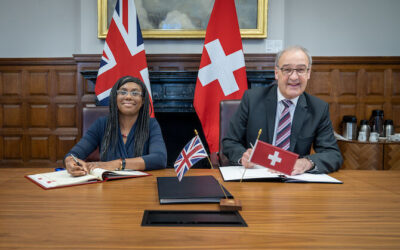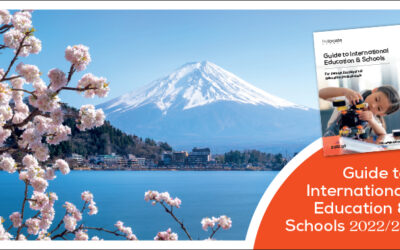Education in Switzerland
Switzerland has always ranked as one of Europe’s best destinations for education. The choices include a highly rated state system, bilingual and international schools and an elite boarding school network.
Switzerland has always been a popular destination for the globally mobile thanks to its multicultural population, well-developed economy and spectacular natural environment.
According to the Federal Statistics Office (FSO) there were 2.2 million expats living in Switzerland in 2022, accounting for 25 per cent of the country’s population. Last year, Immigration increased by 14 per cent, largely due to an ongoing skills shortage in Switzerland.
Most international families live in German-speaking Zurich, Switzerland’s most populous city, followed by French speaking Geneva. Expats love the quality of life in Switzerland, but it comes at a cost: 2022 figures from the Economist Intelligence Unit put Zurich and Geneva sixth and seventh most expensive cities in the world in which to live.
The Swiss state education system consistently ranks as one of the best in Europe, but in a multilingual country where four languages are spoken – French, German, Italian and Romansh (the latter is indigenous to Graubunden, the country’s largest canton), accessing it can be tricky for international families.
HOW THE STATE SYSTEM WORKS
Responsibility for compulsory education (between ages 6 and 15/16) lies with each of Switzerland’s 26 individual cantons. There is no national curriculum, but schools must meet objectives overseen by the State Secretariat for Education, Research and Innovation.
Most Swiss children (95 per cent) attend free state schools close to their home. Being bilingual is important and most children speak at least one second language. “I advise expat parents with young children to start in the state system so their children can become fluent in German, and switch to private later,” says Stefanie Busse, founder of Zurich-based Swiss Education Consulting.
The education system is divided into three phases: primary from age six until 12, followed by lower secondary which last three years. The end of lower secondary at age 15/16 is a crossroads for students: they can officially leave school but over 90 per cent go on to get an upper secondary qualification.
Upper secondary presents two options – a more academic general education or a vocational education programme (VET). The academic general education route prepares students for university via the Matura leaving certificate. Most student choose the highly regarded VET, a combination of learning in school and on-the-job.
WHY INTERNATIONAL SCHOOLS SUIT THE GLOBALLY MOBILE
While standards are high in the state system, most expats choose international schools where lessons are taught in English and the education is transferable. According to ISC Research there are 103 English medium international schools in Switzerland educating 29,200 children between the ages of 3 and 18.
There is a huge choice of curriculums and schools on offer, from American and British to Japanese and French, with fees for day schools hovering between CHF30,000 and 38,000 in the senior years.
“Switzerland has long had one of the largest numbers of international schools in Europe,” says Frazer Cairns, chair of the Swiss Group of International Schools (SGIS) which has 54 member schools across the country. “Families choose them for the opportunity to learn in English, skilled teachers, smaller class sizes and environments that value a holistic approach.”
Unlike in other parts of the world, Switzerland’s international schools are mainly patronised by expats, with fewer locals, says Nalina Cook from ISC Research. In some cantons, including Zurich, Swiss children are not allowed to attend international schools.
The last few years has been tough for some international schools and several smaller ones have been forced to close. “Companies are less prepared to pay for education, or they offer a limited package for two or three years,” says Swiss Education Consulting’s Busse. “After that some expats pay their own fees and others try and enroll in local schools, but unless children speak fluent German it is hard to switch.”
Related reading from our sister website Relocate Global:
- TASIS The American School In Switzerland
- Cognita welcomes its first school in Switzerland
- Inter-Community School Zurich
- International School Zurich North
Schools in Zurich
Zurich is Switzerland’s largest city has a population of 435,000, about 30 per cent of which is international. The city is one of the most important financial centers in Europe with a growing fintech hub and home to the Swiss stock exchange and global Swiss companies such as UBS, Swiss Re and Zurich. According to a recent report by research institute BAK Economics, Zurich’s financial hub generates one in 10 jobs in the region and employs 97,000 people.
Zurich has plenty of good state schools, but teaching is in Swiss-German, making it inaccessible for many international families, who often prefer the city’s international schools. With over 20 in the city and surrounding area, there is plenty of choice.
“Parents ask me which schools are the most academic, but it is impossible to answer,” says Busse. “The most established offer a solid education but because the student body is diverse, and many do not have English as a first language, schools can have good results one year, but not the next. It depends on the cohort.”
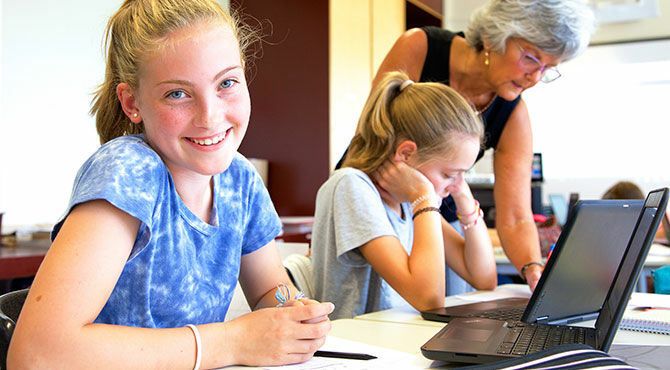
The Inter-Community School Zurich
One of the biggest is Zurich International School, based on three campuses and educating 1300 students aged between three and 18. Around one third of pupils are from the UK or US, lessons are in English and most study for the IB diploma. Founded in 1963, the school recently opened a new middle and upper school campus with swish facilities including a new media centre, two concert halls and expanded sport facilities with an indoor gym and full-size pitch.
The Inter-Community School Zurich is the oldest international school in the Zurich area, founded in 1960, and the only school in Zurich offering a through0school IB education including primary, middle years and the IB diploma.
For students seeking a British education, the International School Zurich North (ISZN), part of the global Cognita Schools Group, was established in 1999. It offers IGCSE and A levels, alongside the IB diploma.
Hull’s School, founded in 1945, also has a curriculum based on IGCSE and A levels, educating 400 teenagers from Years 10 to 13. Most of the students are native German speakers and Swiss nationals.
For bilingual children the SIS Swiss International Schools Group has eights school in Switzerland including four in the Zurich region providing a K-12 bilingual education in German and English. At the Swiss International School in Zurich students graduate with either the Swiss Matura or the IB diploma.
Schools in Geneva
French speaking Geneva is Switzerland’s second largest city with a population of 202,000. Around 40 per cent come from outside Switzerland, representing 189 nationalities. Many work in in the city’s financial centre or in one of the UN organisations that have headquarters in the city, including the World Health Organisation. According to Geneve Internationale the city is home to 39 international organisations and 432 NGOs which account for one in ten jobs.
The financial centre also has many international employees: according to the Geneva Financial Centre, the umbrella association for the financial sector, there are over 6500 companies in the financial center and over 37,000 people work in banking and finance.
With around 18 international schools in Geneva, families have plenty of choice. One of the best known is the International School of Geneva, known as Ecolint, which educates 4000 students across three campuses incorporating 140 nationalities. Founded in 1924 by civil servants from the International Labour Organisation and League of Nations (the forerunner to the UN), it was the world’s first international school. It is also the birthplace of the IB diploma, developed by Ecolint teachers in the 1960s. Students are encouraged to be bilingual and can study for either the IB, IGCSE and A levels or the IB diploma.
The College du Leman is popular with students from the US. Part of the Nord Anglia Education group, it is a bilingual K-12 day and boarding school with 1900 students and delivers a range of curriculums leading to the American high school diploma, the IB, Swiss Matura and the French Bac. Most graduates go on to university in the UK, Switzerland and the US.
For families looking for a K-12 British curriculum, students at the Geneva English School (GES) study for IGCSE and A levels on two campuses at Genthod and Versoix, just outside Geneva.
There are good international options elsewhere in the country including Lausanne, Bern, the Swiss Alps and Basel. The International School of Berne opened in 1961 and moved to on a new purpose-built campus in 2017. It is the only internationally-recognized English language school in the canton, and the only to offer a through-train IB programme. It also offers a distance learning option and the ISBBerne Diploma, an accredited American high school diploma.
The International school of Lausanne also offers a through-train IB education across four campuses and nearby Haut Lac International bilingual school opened in 1993 providing a K-12 truly bilingual English/French education leading to the IB diploma.
SWISS BOARDING SCHOOLS: THE ELITE CHOICE
The strongest growth in the Swiss international education market is in the country’s elite boarding school network, charging premium fees and delivering a personalized education alongside a luxe selection of extra-curricular activities which might include skydiving, ski touring and sailing. Fees are steep – upwards of US$130,000 and according to ISC Research, they attract the wealthiest families particularly from Russia, Ukraine, Mexico and China.
“These boarding schools have seen record numbers of new enrolments and admissions enquiries,” says Cairns.
They include the TASIS American School in a spectacular mountain setting overlooking Lugarno, part of a group of international schools with campuses in the UK, Puerto Rico and Portugal. It was the first American boarding school in Europe, founded in 1956, and with students from over 60 countries and delivers an IB curriculum.
One of the most expensive schools in the world is the exclusive Institut auf dem Rosenberg in a beautiful parkland setting in German speaking town of St Gallen, around one hour from Zurich. Founded in 1889, With only 230 students, and an average class size of eight and student staff ratio of 1:2. Its co-curricular activities include wealth creation and investment and diplomacy and leadership. with fees of $145,000.
Others include Le Rosey, on the shores of Lake Geneva, where students move to the school’s second campus in Gstaad for the winter term to allow for daily skiing. Le Rosey also acts as a mentor to its sister school, Le Regent, the newest international boarding school which opened in Crans Montana in heart of Swiss Alps in 2015.
Others in the exclusive Swiss boarding network include Brillantmont International, in Lausanne, founded in 1882 and the oldest family run and owned international school in Switzerland; The College-Alpin Beau Soleil in French speaking Villars-sur-Ollon surrounded by spectacular view of the Alps; Aiglon College in Chesieres and the Lyceum Alpinum Zuoz near St Moritz.

Join Think Global People
Our exclusive membership network for decision-makers, aspiring leaders, experts and thought leaders focused on global business and working.

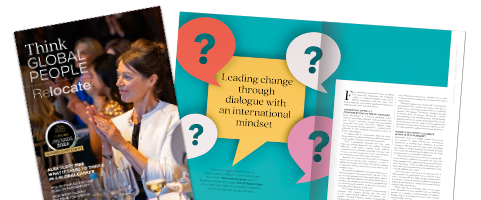

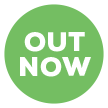 Magazine
Magazine

